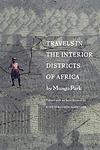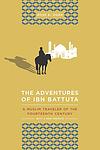The Greatest "Mali" Books of All Time
Click to learn how this list is calculated.
This list represents a comprehensive and trusted collection of the greatest books. Developed through a specialized algorithm, it brings together 286 'best of' book lists to form a definitive guide to the world's most acclaimed books. For those interested in how these books are chosen, additional details can be found on the rankings page.
Genres
The "Mali" category in books refers to a genre that encompasses literature connected to the West African country of Mali, its rich history, diverse cultures, and the experiences of its people. This category includes a wide range of literary works such as historical accounts of the ancient Mali Empire, which was once one of the most powerful empires in the world, narratives about the country's colonial past and subsequent independence, as well as contemporary issues facing Malians today. It also features traditional Malian folklore, stories of the legendary city of Timbuktu, and its significant contribution to Islamic scholarship and literature. Additionally, the Mali category may include travelogues, anthropological studies, and fiction set in Mali that captures the complexities of its society, the beauty of its landscapes, and the resilience of its inhabitants. Through these literary works, readers can explore the multifaceted identity of Mali and gain a deeper understanding of its historical significance and current realities.
Countries
Date Range
Reading Statistics
Click the button below to see how many of these books you've read!
Download
If you're interested in downloading this list as a CSV file for use in a spreadsheet application, you can easily do so by clicking the button below. Please note that to ensure a manageable file size and faster download, the CSV will include details for only the first 500 books.
Download-
1. God's Bits of Wood by Ousmane Sembène
This novel tells the story of a railway strike on the Dakar-Niger line that lasted from 1947 to 1948. The workers endure low wages and dangerous conditions, while their French bosses live comfortably. The strike is initially led by men, but as it drags on and hardship intensifies, the women of the community play an increasingly vital role, culminating in a triumphant march where they demand equal rights and recognition. The book explores themes of colonialism, gender roles, and the struggle for equality.
-
2. Travels in the Interior Districts of Africa by Mungo Park
"Travels in the Interior Districts of Africa" is a detailed account of the author's exploration into the heart of Africa at the end of the 18th century. The narrative provides an in-depth look at the geography, flora, fauna, and local cultures of the region at the time. The author, a Scottish explorer, recounts his journey along the Niger River, his encounters with different African tribes, his experiences of being captured and enslaved, and his eventual escape. The book offers a unique perspective on African society and the European perception of Africa during this period.
-
3. Les Bouts De Bois De Dieu by Ousmane Sembène
"Les Bouts De Bois De Dieu" by Ousmane Sembene is a powerful and thought-provoking novel that depicts the struggles and resilience of a group of African railway workers in Senegal during the colonial era. As they face exploitation, discrimination, and harsh working conditions, the workers unite and organize a strike to demand better treatment and fair wages. Through vivid storytelling and compelling characters, the book explores themes of social injustice, solidarity, and the fight against oppression, highlighting the resilience and determination of the human spirit.
-
4. L'étrange Destin De Wangrin by Amadou Hampâté Bâ
"L'étrange Destin De Wangrin" by "Amadou Hampâté Bâ" is a captivating narrative that delves into the life of Wangrin, a complex and enigmatic figure in West African society. Through a series of interconnected stories, the book explores Wangrin's rise from a humble clerk to a powerful and influential figure, as well as his eventual downfall. Set against the backdrop of colonialism and cultural clashes, the novel offers a thought-provoking exploration of identity, power dynamics, and the consequences of one's choices.
-
5. Segu by Maryse Condé
"Segu" is a historical novel that delves into the lives of the Traore family, a noble lineage within the Bambara Empire of Segu (present-day Mali) during the late 18th and early 19th centuries. As the region faces the pressures of colonialism, the slave trade, and religious upheaval from both Islam and Christianity, the family members experience profound transformations in their personal identities and loyalties. Through their diverse and often conflicting paths, the novel explores the complex interplay of social, political, and cultural forces shaping West Africa during a period of intense turmoil and change.
-
6. La Charte Du Mandé Et Autres Traditions Du Mali by Aboubakar Fofana, Jean-Louis Sagot
"La Charte Du Mandé Et Autres Traditions Du Mali" is a comprehensive exploration of the rich historical and cultural heritage of Mali, focusing on the ancient Mandé Charter, also known as the Manden Charter. This seminal text delves into the origins and implications of this 13th-century document, which is one of the earliest forms of human rights charters. The book not only examines the charter's principles of social justice, equality, and political ethics but also contextualizes it within a broader spectrum of Malian traditions, shedding light on the country's profound historical narratives and the enduring cultural practices that continue to shape its identity.
-
7. The Adventures Of Ibn Battuta by Ross E. Dunn
"The Adventures of Ibn Battuta" is a historical account that follows the journeys of the 14th-century Moroccan explorer Ibn Battuta, who traveled extensively across the Islamic world and beyond, covering parts of Africa, Asia, and Europe. The book provides a detailed narrative of his adventures, insights into the diverse cultures he encountered, and the various historical figures he met along the way. Through his travels, Ibn Battuta offers a unique perspective on the medieval world, making this book not only a recount of his life but also a valuable source for understanding the interconnectedness of different societies during that era.
Reading Statistics
Click the button below to see how many of these books you've read!
Download
If you're interested in downloading this list as a CSV file for use in a spreadsheet application, you can easily do so by clicking the button below. Please note that to ensure a manageable file size and faster download, the CSV will include details for only the first 500 books.
Download





